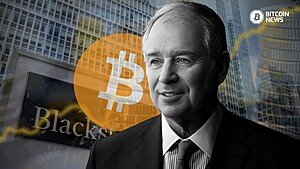In a notable departure from the recent approval of spot Bitcoin Exchange-Traded Funds (ETFs) by the U.S. Securities and Exchange Commission (SEC), the Monetary Authority of Singapore (MAS) has declared that it will not permit the listing of Bitcoin ETFs in the country.
This decision is grounded in the belief that digital assets, including Bitcoin, fail to meet the criteria for qualified assets within the context of ETFs. Unlike the United States, where 11 spot Bitcoin ETFs were approved, Singapore is adopting a cautious approach due to concerns about the high volatility and speculative nature of digital asset trading.
MAS Guidelines and Overseas Trading
Although the MAS is refraining from allowing the local listing of spot Bitcoin ETFs, capital market intermediaries licensed by the MAS can facilitate overseas market-related investments. However, this is subject to stringent conditions, including the provision of adequate risk disclosure and appropriate customer suitability assessments. According to local reports, retail investors in the country can still trade spot Bitcoin ETFs listed overseas through local brokers, adhering to the regulatory guidelines set by the MAS.
A spokesperson for the Monetary Authority clarified that Collective Investment Schemes (CIS) accessible to retail investors in Singapore are regulated by the Securities and Futures Act, covering ETFs. However, these retail CIS have limitations on the types of assets they can invest in, with Bitcoin currently excluded.
The spokesperson attributed this exclusion to the high volatility of digital assets, emphasizing that bitcoin trading is not deemed suitable for retail investors. They stated:
“Cryptocurrency trading is highly volatile and speculative in nature and is not suitable for retail investors. Those who still choose to trade Bitcoin ETFs in overseas markets must exercise extreme caution. In addition, they should also carefully consider trading with overseas markets. associated additional risks.”
Investor Protection Measures in Asia
In a parallel effort to enhance investor protection and curb speculative retail trading of digital assets, South Korea’s regulator has barred domestic brokers from offering spot Bitcoin ETFs overseas. The government cited potential violations of its current stance on virtual assets.
Despite the ban, the Financial Services Commission in South Korea acknowledged the possibility of reviewing its stance on digital asset regulation, though specific details were not provided.
Moreover, the Hong Kong Monetary Authority has also initiated efforts to enhance investor protection and prohibit speculative retail trading of digital assets. The proposed tightened regulations are pending approval and implementation, with the outcomes of the public review playing a pivotal role in shaping the regulatory landscape in Hong Kong.
Spot Bitcoin ETF Market Dynamics
The U.S. SEC recently approved 11 spot Bitcoin ETFs, including offerings from major players like Grayscale, BlackRock, ARK 21Shares, VanEck, Valkyrie, and Fidelity.
Notably, spot Bitcoin ETFs witnessed $10 billion of trading within three days of approval. Despite an initial surge in inflows, subsequent market dynamics have seen fluctuations and declines in trading value.
As global regulatory bodies grapple with crafting appropriate frameworks, the divergent approaches taken by Singapore and the U.S. underscore the ongoing challenges in reconciling the potential of digital assets with the need for investor protection and market stability.










